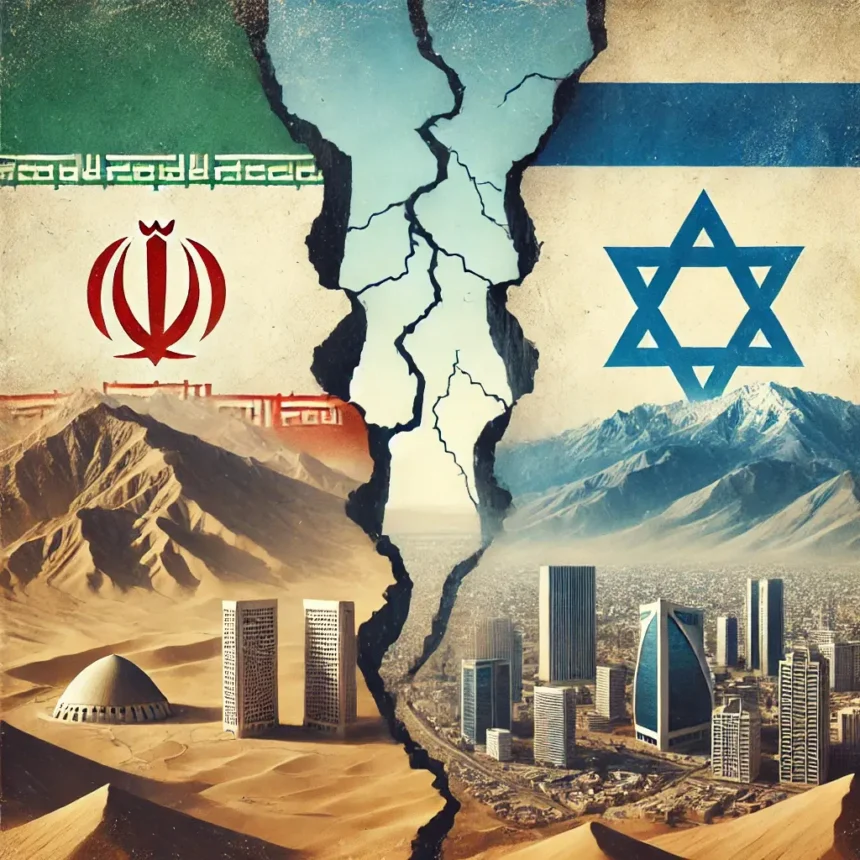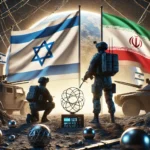Introduction
The Iran Israel war refers to the ongoing hostility between the two nations. It involves military confrontations, proxy wars, and ideological differences. Iran and Israel have no diplomatic relations, and their rivalry impacts the broader Middle East. The conflict is characterized by religious, political, and military disputes that have escalated over decades. This article explores the background, major events, and implications of the Iran Israel war.
Historical Context
Roots of the Conflict
The Iran Israel war is rooted in various historical events. Israel was established in 1948, and the Arab world largely opposed its formation. Although Iran initially had friendly relations with Israel, this changed after the 1979 Iranian Revolution. Iran became an Islamic Republic, and the new regime condemned Israel’s existence.
Shifting Alliances
During the reign of the Shah, Iran and Israel maintained secret alliances. However, after the revolution, Iran’s leaders rejected these ties. They viewed Israel as an illegitimate state and started supporting anti-Israeli groups. This marked the beginning of a hostile relationship, with Iran backing groups that opposed Israel, such as Hezbollah and Hamas.
Key Aspects of the Iran Israel War
Proxy Warfare
One of the defining characteristics of the Iran Israel war is proxy warfare. Iran has supported various militant groups that operate against Israel. These include Hezbollah in Lebanon and Hamas in the Palestinian territories. Israel, on the other hand, has targeted these groups, viewing them as extensions of Iran’s influence.
Ideological Conflict
The conflict is not only political but also ideological. Iran’s leaders have frequently called for the destruction of Israel, referring to it as a “Zionist regime.” They see Israel as an occupying force in the Muslim world. Israel views Iran’s rhetoric and actions as a direct threat to its existence. This ideological opposition fuels much of the tension between the two nations.
Military Confrontations
While a full-scale war between Iran and Israel has not occurred, there have been numerous military confrontations. Israel has carried out airstrikes on Iranian targets in Syria and Iraq. These strikes aim to weaken Iran’s military presence in the region. Meanwhile, Iran has supported missile attacks on Israeli territory through its proxies.
Impact of the Iran Israel War
Regional Instability
The Iran Israel war has contributed to instability in the Middle East. The rivalry between the two countries affects neighboring nations and broader international relations. For example, Syria has become a battleground for Iranian and Israeli forces. Iran’s influence in countries like Lebanon and Iraq also worries Israel, as it expands Iran’s reach in the region.
Nuclear Concerns
A significant aspect of the conflict is Iran’s nuclear program. Israel views Iran’s pursuit of nuclear technology as a grave threat. Israeli officials have warned that Iran could develop nuclear weapons, which would shift the balance of power in the Middle East. Israel has taken steps to sabotage Iran’s nuclear program, including cyberattacks and assassinations of key scientists.
Humanitarian Impact
The ongoing conflict has had severe humanitarian consequences, particularly for civilians in the region. The wars and skirmishes that stem from the Iran Israel war have led to displacement, loss of lives, and destruction of infrastructure. Populations in conflict zones like Syria and Lebanon have been most affected.
International Reactions
U.S. Involvement
The United States has historically been a strong ally of Israel. It provides military and financial support to Israel while imposing sanctions on Iran. The U.S. has also been involved in peace negotiations and efforts to limit Iran’s influence in the region. Its role in the Iran Israel war is significant, as it often shapes the dynamics between the two countries.
European Stance
European countries have a more balanced approach to the conflict. While they recognize Israel’s right to exist, they also encourage diplomatic efforts to resolve tensions with Iran. The European Union has played a role in negotiating the Iran nuclear deal, which aimed to limit Iran’s nuclear capabilities in exchange for lifting economic sanctions.
Middle Eastern Reactions
Other Middle Eastern nations are divided in their support. Some, like Saudi Arabia and the United Arab Emirates, view Iran as a threat and have grown closer to Israel. Others, like Syria and Iraq, have stronger ties to Iran. The Iran Israel war thus shapes alliances and rivalries across the Middle East.
Challenges in Resolving the Conflict
Lack of Diplomatic Relations
One of the biggest obstacles to peace is the absence of diplomatic relations between Iran and Israel. Both countries refuse to engage in direct negotiations. Without dialogue, the chances of resolving their differences remain slim.
Sectarian Divide
The Iran Israel war is also fueled by the sectarian divide in the Middle East. Iran is a predominantly Shia Muslim country, while most of Israel’s neighbors are Sunni Muslims. This adds another layer of complexity to the conflict, making it harder to find common ground.
Global Implications
The Iran Israel war has global implications. It affects oil prices, international trade, and global security. The involvement of major powers like the U.S. and Russia further complicates efforts to de-escalate the conflict.

FAQs about the Iran Israel War
1. What is the Iran Israel war about?
The Iran Israel war involves political, military, and ideological differences between the two countries. Iran opposes Israel’s existence, while Israel views Iran as a significant threat to its security.
2. Has there been a direct war between Iran and Israel?
No, a direct war has not occurred. However, there have been numerous confrontations through proxy groups and airstrikes.
3. Why is the Iran Israel conflict significant?
It is significant because it contributes to instability in the Middle East. It also involves key global powers and affects international security.
4. How does the conflict impact other countries?
The conflict shapes alliances and rivalries in the region. It also has global economic implications, particularly concerning oil markets.
5. Is there a solution to the Iran Israel war?
A solution remains elusive due to the lack of diplomatic relations and deep ideological differences. Efforts at peace are complicated by external factors like nuclear concerns and proxy warfare.
Conclusion
The Iran Israel war is a multi-faceted conflict that impacts not only the Middle East but the world at large. Its roots are deep, and its resolution remains complex. Military, ideological, and political factors continue to drive the conflict, making peace difficult to achieve. However, understanding the key aspects of this conflict is essential for grasping the broader dynamics of the region.









